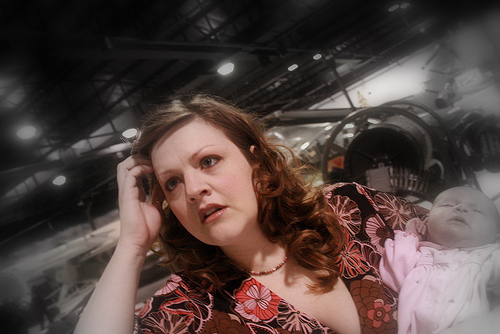
An anxiety panic attack is a sudden surge of fear and anxiety that is overwhelming. it usually starts without any clear reason and without any warning. Anxiety panic attacks can happen to anyone and any age. Health and status does not matter. Many time an attack is a one-time occurrence. some people however, experience recurring episodes. the episodes are usually triggered by something like speaking in front of a large crowd or doing a presentation at work. Anxiety panic attacks may be combined with another disorder like depression, panic disorder, or social phobia which are generally harmless. even so, they still feel that their life is in danger. whatever the case, the good news is, anxiety panic attacks are treatable.
An anxiety panic attack can happen just about anytime, but they usually happen when you are away from home. you may be at work, at a store shopping, driving your car, in a class or even while you’re sleeping.
The signs and symptoms come on very quickly and usually peak out within 10 minutes or so. most anxiety panic attacks don’t last for more than a half hour and very rarely lasts for more than an hour.
The following are some signs and symptoms a person will exhibit during an attack:
* Chest pain* Increased heartbeat or palpitation* Upset stomach* Shortness of breath or hyperventilating* Trembling and shaking* Sweating* Muscle tension* Dizziness and light-headed* Tingling sensation or numbness* Hot or cold flashes* Fear of dying, or losing control* Feeling of detachment
An anxiety panic attack can happen once without any complication. If this happens there is no real reason to be concerned, even if you have two or three episodes. the concern begins when someone has more than a few episodes, because this can be the beginning of the development of a panic disorder.
If panic attacks are recurring with persistent anxiety and major changes in the individuals behavior are evident, it can be considered a panic disorder. the two symptoms that mark a panic disorder are: (1) phobic avoidance and (2) anticipatory anxiety.
Phobic avoidance is when you begin to avoid certain things or situations because you have the belief that it will trigger another attack. it can also be the avoiding of certain situations that have caused a previous attack. Avoidance of places or situations where getting away would be difficult and help unavailable. an example would be riding an elevator or flying in an airplane.
Anticipatory anxiety is the “fear of fear” or the fear of possibly having a future panic attacks. This symptom is characterized by the person being tensed and anxious. If not treated, the condition can be disabling.
Related Products: